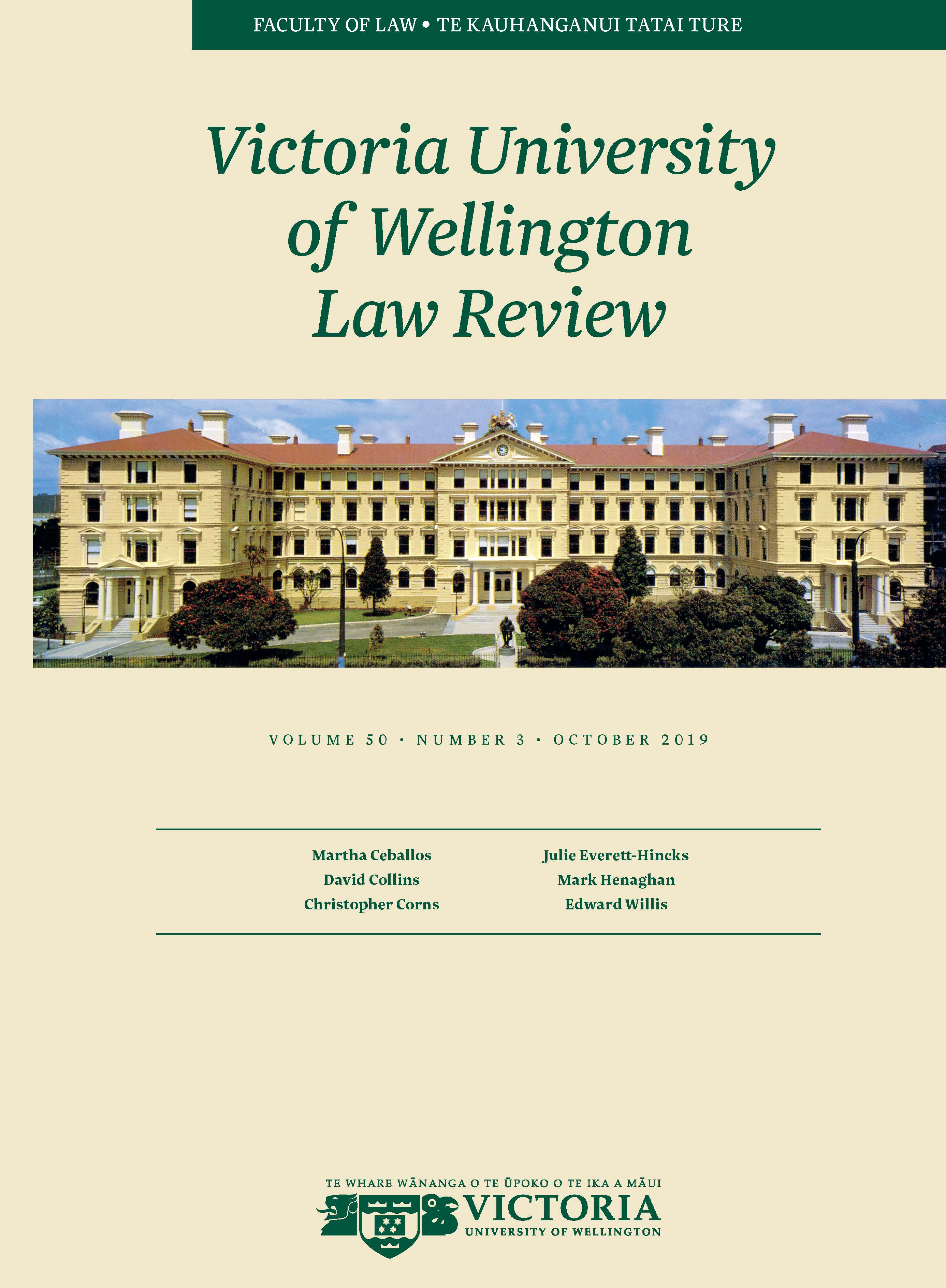Gene Editing in Aotearoa – Legal Considerations for Policy Makers
DOI:
https://doi.org/10.26686/vuwlr.v50i3.5990Abstract
Gene editing use in pest control, primary industries and human health care pose significant new challenges for regulation. Under current New Zealand legislation (the Hazardous Substances and New Organisms Act 1996) and a judicial ruling on interpretation of the legislation and regulations, the status of gene edited organisms in New Zealand are considered genetically modified and are regulated as new organisms employing a precautionary approach. This article has identified some of the complexities of the legislation inherent in regulating a rapidly developing technology, where such advances may be well ahead of current frameworks and public acceptance. Legal and policy issues have been considered. A future-proof framework to keep abreast rapidly advancing biotechnologies is required whereby new legislation for biotechnologies is developed and a single-entry point for biotechnology applications is implemented. Most importantly this article recommends valuing Treaty of Waitangi principles and have those principles lead us in all that we do.
Downloads
Downloads
Published
How to Cite
Issue
Section
License
Authors retain copyright in their work published in the Victoria University of Wellington Law Review.


